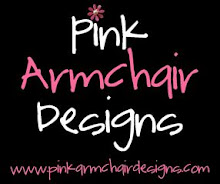 I have had a request to type a little on Recycling (thanks Will!). So I am going to try my best to give you a brief look at the third R (right behind Reduce and Reuse) and get us all recycling on the the right track.
I have had a request to type a little on Recycling (thanks Will!). So I am going to try my best to give you a brief look at the third R (right behind Reduce and Reuse) and get us all recycling on the the right track. The first step in recycling is making the decision to do it. And here's a look at why you should make that decision...
- The EPA estimates that 75% of what Americans trash, could be recycled. Only 25% of that is currently being recycled.
- Paper takes up 50% of landfill space. Every ton of paper recycled saves 17 forty foot Douglas Fir trees.
- The national recycling rate of 30 percent saves the equivalent of more than five billion gallons of gasoline, reducing dependence on foreign oil by 114 million barrels.
- Incinerating 10,000 tons of waste creates one job; landfilling 10,000 tons of waste creates six jobs; recycling 10,000 tons of waste creates 36 jobs.
- and the list could go on, and on, and on....
Now that you see how important it is to recycle, the next step is to find out what recycling options are available in your area. Every city has a website now, so do a search for yours and see what they offer. Another way to get information is to call your trash pick-up company and see if they offer recycling pick-up as well. If you can't find a pick-up from one of these two sources, check out your local large grocery stores, some have started offering recycling centers outside. And if you are still at a loss, check out www.bottlesandcans.com, where you can type in your zip and get a map of recycling centers near you.
If your recycling service doesn't provide bins, you might have to get your own. There are lots of options
of options out there, so just make sure you find one that works
out there, so just make sure you find one that works for you. The Eco Pod is the big daddy of home recycling bins and is great for people who don't want a lot of mess to deal with.
for you. The Eco Pod is the big daddy of home recycling bins and is great for people who don't want a lot of mess to deal with.

Finally, figure out what you can recycle. If you get bins as part of your recycling service, they will probably have guidelines listed on the side. A few things to make sure you always get in your bin are: paper (usually they request that your papers be together in a paper bag inside the bin), clean metal, all glass, corrugated cardboard (break the boxes down first), plastics with 1 or 2 in the recycling arrows.

Finally, figure out what you can recycle. If you get bins as part of your recycling service, they will probably have guidelines listed on the side. A few things to make sure you always get in your bin are: paper (usually they request that your papers be together in a paper bag inside the bin), clean metal, all glass, corrugated cardboard (break the boxes down first), plastics with 1 or 2 in the recycling arrows.
Most recycling centers do not accept plastics with 3,4,5,6 and especially 7 (I know, it's annoying). Check with your local service on exactly what numbers they take and which ones they don't and try to follow those guidelines. Putting stuff they can't recycle into the bin only makes more work and waste for them.
Some regular household things that need to go into the trash are: rubber bands, wet or food stained paper, milk and juice cartons, wax paper, used napkins or tissue (these can go in compost too, more on that later), laminated paper, pyrex glass, and ceramics.
Then there is a whole 'nother class of trash...the hazardous waste stuff...that needs it's own special treatment. But I know this is a lot to take in so I will go over what to do with hazardous waste tomorrow.
To find information used in this posting go to:
Earth 911
Earth Easy
Gorgeously Green: 8 Simple Steps to an Earth-Friendly Life
Earth 911
Earth Easy
Gorgeously Green: 8 Simple Steps to an Earth-Friendly Life










No comments:
Post a Comment